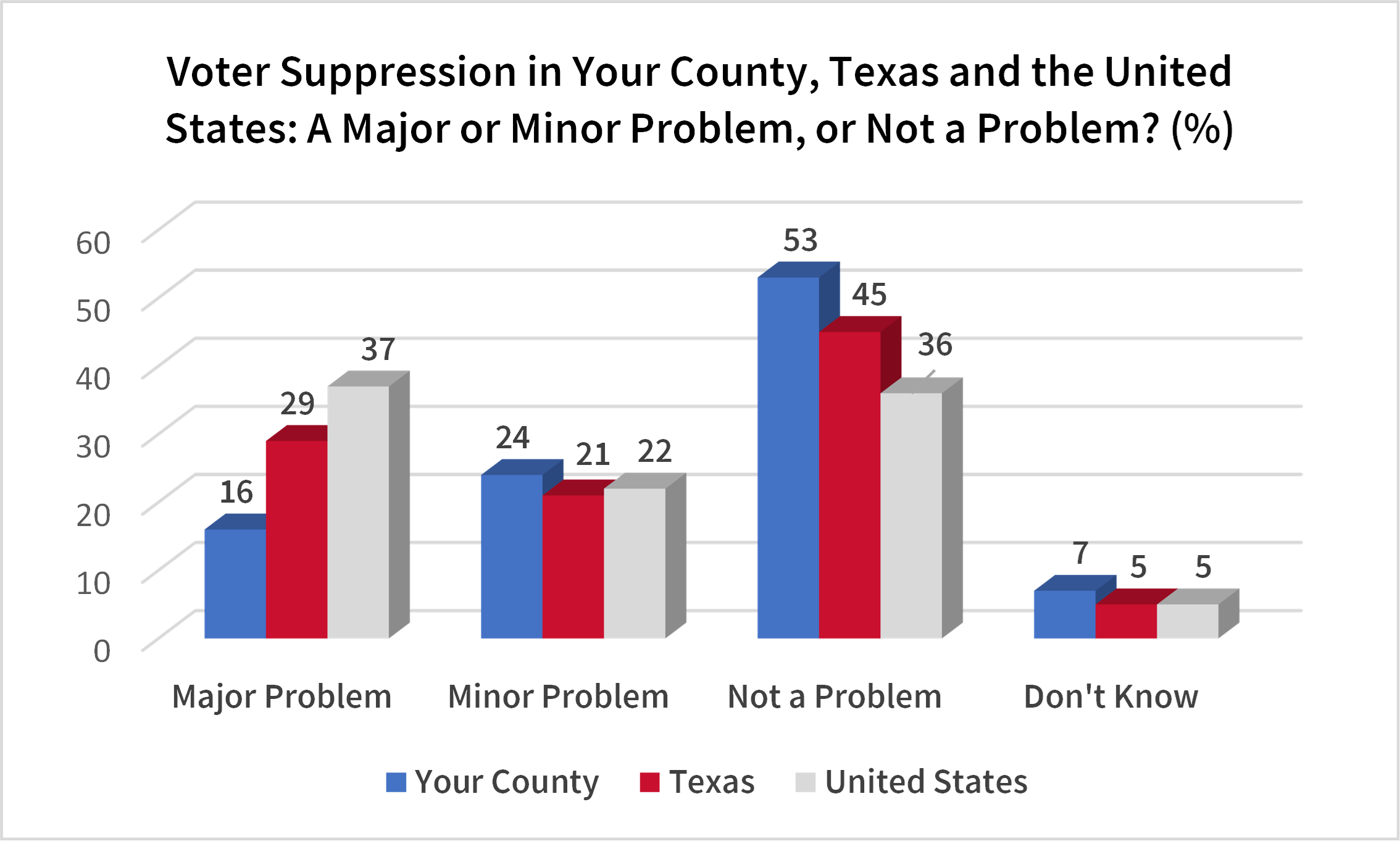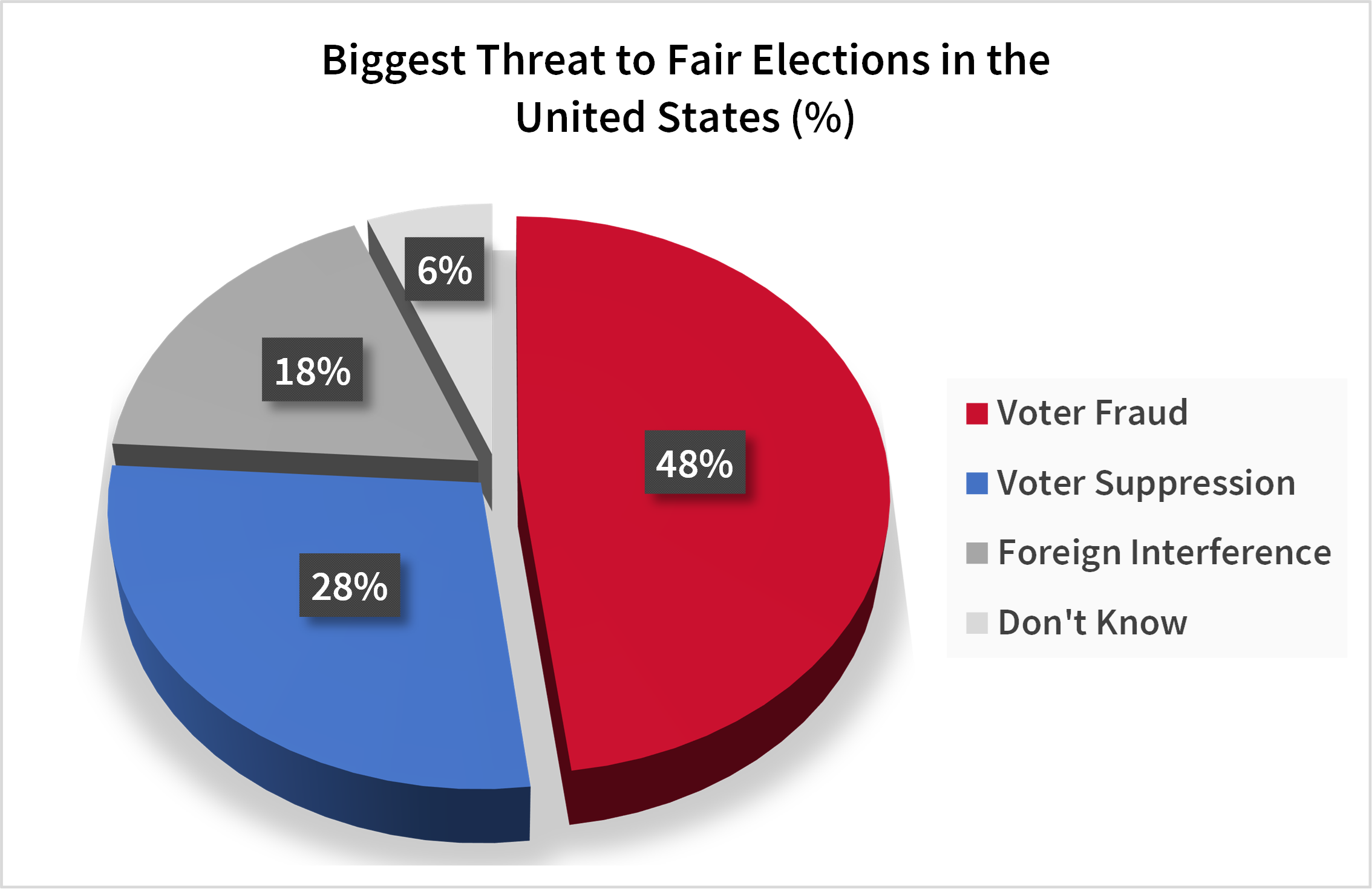Texas General Election 2022
Conventional thought declares that midterm elections most often do not favor the party in the White House. However, 2022 may not be a typical year, with controversial Supreme Court decisions and national issues such as inflation, the economy, immigration and abortion dominating state and local races with a backdrop of concerns about voter suppression and election fraud. Could this be the year for Texas Democrats? Or will the statewide Republican stronghold in Texas remain as it has since 1994? What issues are driving the decisions of Texas voters?
To answer these questions, the Hobby School of Public Affairs at the University of Houston conducted a survey of likely voters in Texas to identify their candidate preferences and their top policy concerns along with their opinions about the voting process. The survey was fielded between October 19 and October 26, 2022, in English and Spanish, with 1,200 YouGov respondents who are likely to vote in the 2022 general election, resulting in a confidence interval of +/-2.8%. The results of the survey will be presented in two reports. The first report examines the vote intention of Texans for the 2022 statewide plural executive offices from governor to railroad commissioner as well as analyzes the influence of a wide range of issues on Texas voters’ gubernatorial vote decision, while also providing the favorability ratings of the top statewide non-judicial candidates. The second report focuses on voter concerns about potential election fraud and voter suppression as well as their evaluation of the voting process in Texas and the U.S.
Report One. Texas General Election 2022
The Races
Governor: Republican Greg Abbott (53%) holds a 13% lead over Democrat Beto O’Rourke (40%), with 4% undecided.

Lieutenant Governor: Republican Dan Patrick (51%) holds a 15% lead over Democrat Mike Collier (36%), with 10% undecided.
Attorney General: Republican Ken Paxton (49%) holds a 12% lead over Democrat Rochelle Garza (37%), with 11% undecided.
Comptroller: Republican Glenn Hegar (49%) holds a 17% lead over Democrat Janet Dudding (32%), with 16% undecided.
Land Commissioner: Republican Dawn Buckingham (48%) holds a 16% lead over Democrat Jay Kleberg (32%), with 18% undecided.
Agriculture Commissioner: Republican Sid Miller (49%) holds a 14% lead over Democrat Susan Hays (35%), with 16% undecided.
Railroad Commissioner: Republican Wayne Christian (47%) holds a 14% lead over Democrat Luke Warford (33%), with 16% undecided.
While only 1% and 2% of likely voters don’t know enough about Abbott and O’Rourke, respectively, to have an opinion about them, and 15% don’t know enough about Patrick and Paxton, more than half of likely voters don’t know enough about the other plural executive candidates on the statewide ballot to have an opinion about them, with proportions ranging from 51% to 72%.

The Issues
Six issues are extremely or very important to the gubernatorial vote decision of more than three out of four likely voters: crime and public safety (85%), inflation (83%), electric grid reliability (81%), government spending and taxes (79%), K-12 public education (79%) and economic growth (76%).
Only three issues have proportions in the double digits of likely voters that rank them as the most important issue to their 2022 gubernatorial vote decision: inflation (32%), immigration and border security (19%), and abortion (10%).

Read Report One to learn more about where Texans stand on the candidates and issues, including differences of opinion when considering gender, age, race/ethnicity and partisanship.
Media Release November 1, 2022
Report Two. Texan Concerns: Voter Fraud, Voter Suppression & Voting Processes
Highlights
Twelve percent (12%) of likely voters in Texas believe voter fraud is a major problem in their county, while 19% believe it is a major problem in Texas and 50% believe it is a major problem in the United States.

Sixteen percent (16%) of likely voters believe voter suppression is a major problem in their county, while 29% believe it is a major problem in Texas and 37% believe it is a major problem in the United States.

48% of likely voters believe that voter fraud is the biggest threat to fair elections in the United States
28% of likely voters believe that voter suppression is the biggest threat to fair elections in the United States.
18% of likely voters believe that interference from a foreign country like Russia or China is the biggest threat to fair elections in the United States.

Substantial majorities of likely voters support the 2021 electoral reforms passed by the Texas Legislature and implemented for the first time in 2022. For example, 84% of likely voters support making it a felony to engage in ballot harvesting, while 79% of likely voters support requiring mail ballot voters to provide their driver license number or last four social security numbers on their mail ballot application and return envelope, and 75% of likely voters support increasing the minimum number of daily early voting hours from 8 to 9.
More likely voters trust their city government (30%), county government (25%) and ISD (22%) to do the right thing most of the time than they trust either the Texas state government (17%) or, especially, the federal government (8%) to do the right thing most of the time.

44% of likely voters support the adoption of ranked choice voting for Texas legislative and U.S. House special elections, compared to 29% who oppose this reform.

Read Report Two to learn more about Texans’ opinions on the voting process and government, including differences of opinion when considering gender, age, race/ethnicity and partisanship.
Research Team
Maria P. Perez Argüelles, Research Associate, Hobby School of Public Affairs
Renée Cross, Senior Executive Director & Researcher, Hobby School of Public Affairs
Mark P. Jones, James A. Baker III Institute for Public Policy's Fellow in Political Science, Rice University; Senior Research Fellow, Hobby School of Public Affairs
Savannah Sipole, Research Associate, Hobby School of Public Affairs
Agustín Vallejo, Post-Doctoral Fellow, Hobby School of Public Affairs